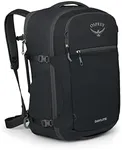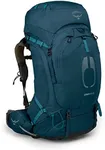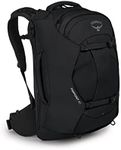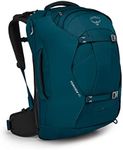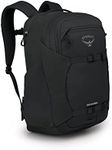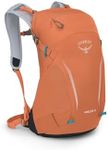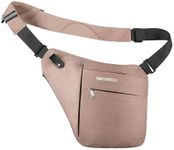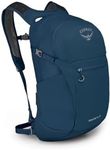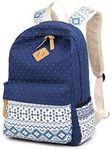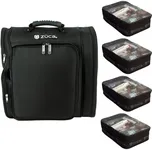Buying Guide for the Best Backpacks
Choosing the right backpack can make a significant difference in your comfort and convenience, whether you're using it for school, work, travel, or outdoor adventures. The key is to find a backpack that fits your needs, is comfortable to wear, and is durable enough to withstand regular use. Here are some important specifications to consider when selecting a backpack, along with explanations to help you make an informed decision.CapacityCapacity refers to the amount of space inside the backpack, usually measured in liters. This spec is important because it determines how much you can carry. For everyday use, a backpack with a capacity of 15-30 liters is typically sufficient. For travel or hiking, you might need a larger capacity, ranging from 30-50 liters or more. Consider what you will be carrying regularly and choose a capacity that accommodates those items without being too bulky.
MaterialThe material of the backpack affects its durability, weight, and water resistance. Common materials include nylon, polyester, and canvas. Nylon and polyester are lightweight and often water-resistant, making them good choices for outdoor use. Canvas is heavier but very durable and has a classic look. If you need a backpack for rugged use or in wet conditions, look for water-resistant or waterproof materials.
ComfortComfort is crucial, especially if you plan to carry the backpack for extended periods. Look for features like padded shoulder straps, a padded back panel, and a waist or chest strap to help distribute weight evenly. Adjustable straps are also important to ensure a good fit. Try the backpack on, if possible, to see how it feels when loaded with weight similar to what you will be carrying.
Compartments and OrganizationThe number and type of compartments can greatly affect how you organize your belongings. Some backpacks have a single large compartment, while others have multiple pockets, including specialized ones for laptops, tablets, water bottles, and other items. Think about what you need to carry and how you prefer to organize your things. A backpack with multiple compartments can help keep your items accessible and organized.
WeightThe weight of the backpack itself is important, especially if you will be carrying it for long periods. A lightweight backpack can reduce the overall load you have to carry. However, lighter materials may be less durable, so find a balance that works for your needs. If you need a durable backpack for heavy use, a slightly heavier model might be worth the extra weight.
Size and FitThe size and fit of the backpack should match your body size and shape. A backpack that is too large or too small can be uncomfortable and may not distribute weight properly. Look for backpacks that come in different sizes or have adjustable features to ensure a good fit. Measure your torso length and compare it to the backpack's dimensions to find the right size for you.
DurabilityDurability is important if you plan to use the backpack frequently or in tough conditions. Check the quality of the stitching, zippers, and buckles. Reinforced seams and heavy-duty zippers can extend the life of the backpack. Consider the reputation of the brand and read reviews to get an idea of how well the backpack holds up over time.
Style and DesignWhile functionality is key, the style and design of the backpack are also important for many people. Backpacks come in a variety of colors, patterns, and designs. Choose one that fits your personal style and the context in which you will be using it. For professional settings, a sleek, minimalist design might be best, while for casual or outdoor use, you might prefer something more colorful or rugged.
